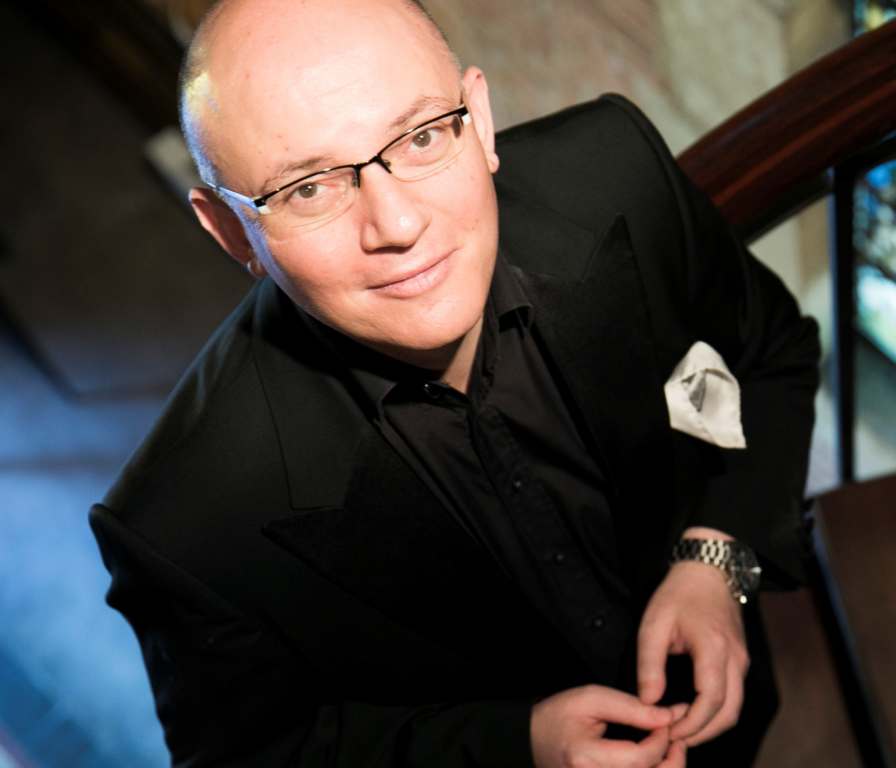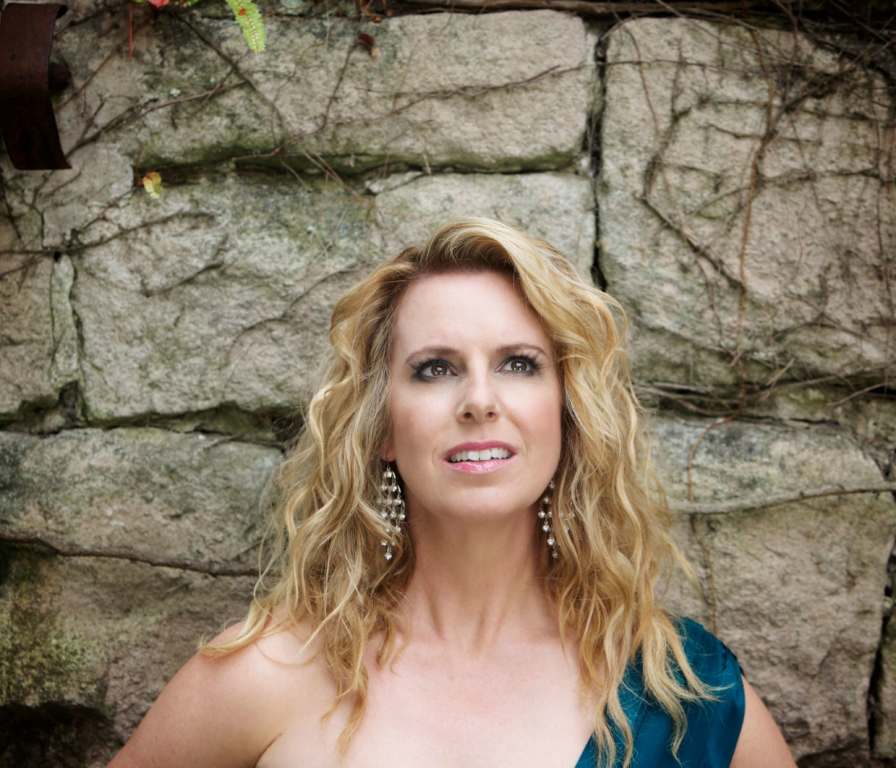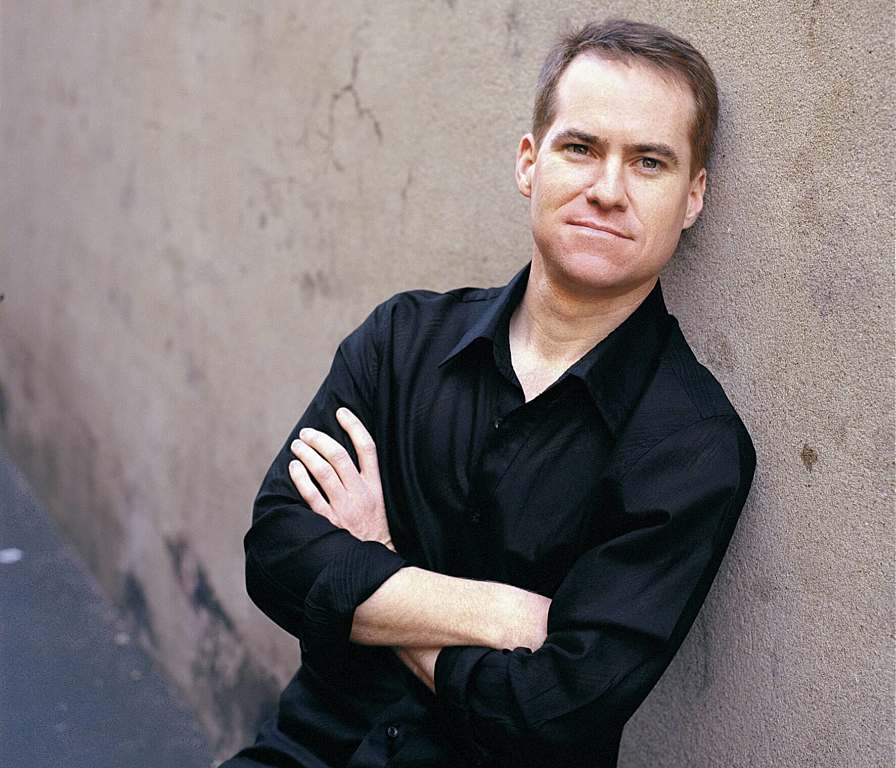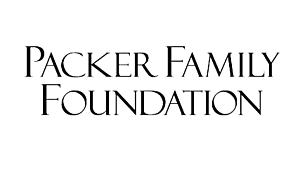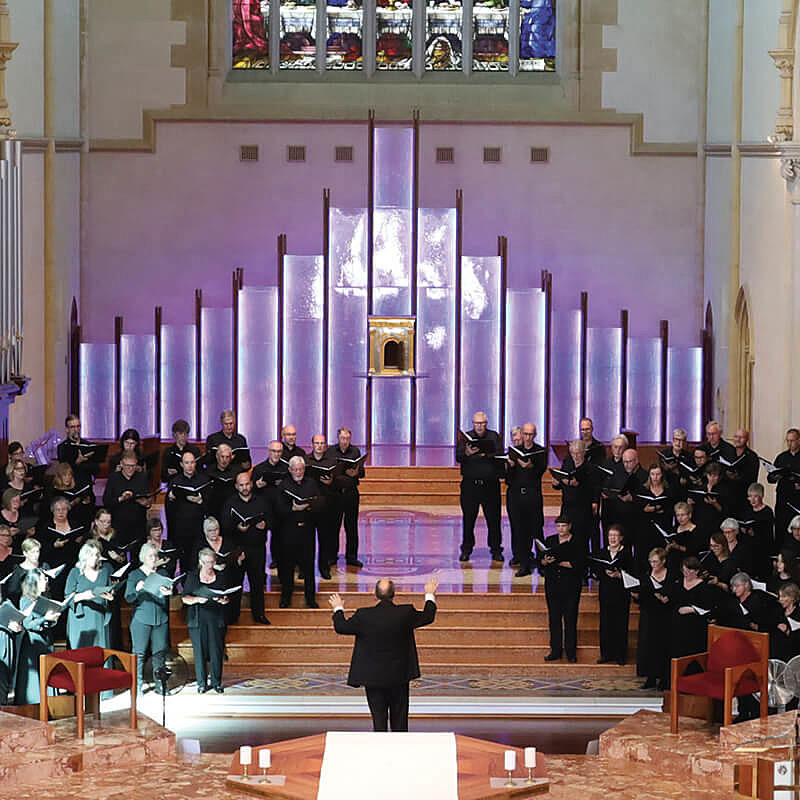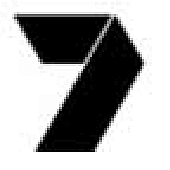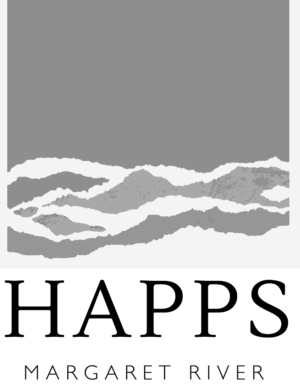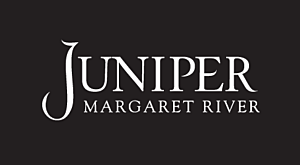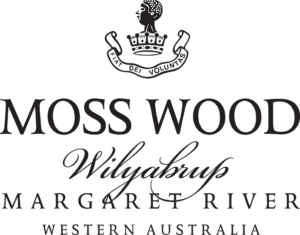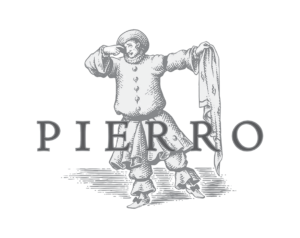Messiah
a Sacred Oratorio
by George Frederic Handel
The words selected from Holy Scripture by Charles Jennens
Part the First
1. Sinfony
2. Comfort ye (Recitative: Tenor)
3. Ev’ry valley (Air: Tenor)
4. And the glory of the Lord (Chorus)
5. Thus saith the Lord (Recitative: Bass)
6. But who may abide (Recitative: Bass)
7. And He shall purify (Chorus)
8. Behold, a virgin shall conceive (Recitative: Mezzo-soprano)
9. O thou that tellest (Air: Mezzo-soprano & Chorus)
10. For behold, darkness (Recitative: Bass)
11. The people that walked in darkness (Air: Bass)
12. For unto us a child is born (Chorus)
13. Pifa
14a. There were shepherds abiding in the field (Recitative: Soprano)
14b. And lo, the angel of the Lord (Recitative: Soprano)
15. And the angel said unto them (Recitative: Soprano)
16. And suddenly there was with the angel (Recitative: Soprano)
17. Glory to God (Chorus)
18. Rejoice greatly (Air: Soprano)
19. Then shall the eyes of the blind (Recitative: Mezzo-soprano)
20. He shall feed his flock (Air: Mezzo-soprano)
21. His yoke is easy (Chorus)
Part the Second
22. Behold the Lamb of God (Chorus)
23. He was despised (Air: Mezzo-soprano)
24. Surely He hath borne our griefs (Chorus)
25. And with His stripes we are healed (Chorus)
26. All we, like sheep (Chorus)
27. All they that see Him (Recitative: Tenor)
28. He trusted in God (Chorus)
29. Thy rebuke hath broken His heart (Recitative: Soprano)
30. Behold and see (Air: Soprano)
31. He was cut off (Recitative: Soprano)
32. But Thou didst not leave (Air: Soprano)
33. Lift up your heads (Chorus)
Interval (20 mins)
34. Unto which of the angels said (Recitative: Tenor)
35. Let all the angels (Chorus)
36. Thou art gone up on high (Air: Bass)
37. The Lord gave the word (Chorus)
38. How beautiful are the feet-Break forth into Joy (Duet and Chorus)
39. Their sound is gone out (Chorus)
40. Why do the nations (Air: Bass)
41. Let us break their bonds (Chorus)
42. He that dwelleth in heaven (Recitative: Tenor)
43. Thou shalt break them (Recitative: Tenor)
44. Hallelujah (Chorus)
There will be a short pause between Parts II and III, during which patrons are asked to remain in the auditorium.
Part the Third
45. I know that my Redeemer liveth (Air: Soprano)
46. Since by man came death (Chorus)
47. Behold, I tell you a mystery (Recitative: Bass)
48. The trumpet shall sound (Air: Bass)
49. Then shall be brought (Recitative: Mezzosoprano)
50. O death, where is thy sting? (Duet: Mezzosoprano & Tenor)
51. But thanks be to God (Chorus)
52. If God be for us (Air: Mezzo-soprano)
53. Worthy is the Lamb (Chorus)
Amen (Chorus)
PART THE FIRST
Prophecy of Christ’s appearance on earth; the nativity.
1. Sinfony
2. Comfort ye (Isaiah 40:1-3) Recitative: Tenor
3. Ev’ry valley (Isaiah 40:4) Air: Tenor
Comfort ye, comfort ye my people,
saith your God;
speak ye comfortably to Jerusalem,
and cry unto her,
that her warfare is accomplish’d,
that her iniquity is pardon’d.
The voice of him that crieth in the wilderness,
prepare ye the way of the Lord,
make straight in the desert a highway for our God.
Ev’ry valley shall be exalted,
and ev’ry mountain and hill made low,
the crooked straight, and the rough places plain.
4. And the glory of the Lord (Isaiah 40:5) Chorus
And the glory of the Lord shall be revealed,
and all flesh shall see it together;
for the mouth of the Lord hath spoken it.
5. Thus saith the Lord (Haggai 2:6-7; Malachi 3:1) Recitative: Bass
Thus saith the Lord, the Lord of Hosts;
Yet once a little while,
and I will shake the heav’ns and the earth;
the sea and the dry land;
And I will shake all nations;
and the desire of all nations shall come.
The Lord, whom you seek, shall suddenly come to His temple,
even the Messenger of the Covenant, whom ye delight in:
behold, He shall come, saith the Lord of Hosts.
6. But who may abide (Malachi 3:2) Recitative: Bass
But who may abide the day of His coming?
and who shall stand when He appeareth?
For He is like a refiner’s fire.
7. And He shall purify (Malachi 3:3) Chorus
And He shall purify the sons of Levi,
that they may offer unto the Lord an offering in righteousness.
8. Behold, a virgin shall conceive (Isaiah 7:14; Matthew 1:23) Recitative: Mezzo-soprano
9. O thou that tellest (Isaiah 40:9 and 60:1) Air: Mezzo-soprano and Chorus
Behold, a virgin shall conceive, and bear a son,
and shall call His name Emmanuel,
‘God with us’.
O thou that tellest good tidings to Zion,
get thee up into the high mountain;
O thou that tellest good tidings to Jerusalem,
lift up thy voice with strength;
lift it up, be not afraid,
say unto the cities of Judah,
Behold your God.
O thou that tellest good tidings to Zion,
arise, shine, for thy light is come,
and the glory of the Lord is risen upon thee.
10. For behold, darkness (Isaiah 60:2-3) Recitative: Bass
11. The people that walked in darkness (Isaiah 9:2) Air: Bass
For behold, darkness shall cover the earth,
and gross darkness the people:
but the Lord shall arise upon thee,
and His glory shall be seen upon thee.
And the Gentiles shall come to thy light,
and kings to the brightness of thy rising.
The people that walked in darkness have seen a great light;
and they that dwell in the land of the shadow of death,
upon them hath the light shined.
12. For unto us a child is born (Isaiah 9:6) Chorus
For unto us a child is born,
unto us a son is given;
and the government shall be upon His shoulder;
and His name shall be called
Wonderful, Counsellor,
The Mighty God,
The Everlasting Father,
The Prince of Peace.
13. Pifa (Pastoral Symphony)
14a. There were shepherds abiding in the field (Luke 2:8) Recitative: Soprano
14b. And lo, the angel of the Lord (Luke 2:9) Recitative: Soprano
15. And the angel said unto them (Luke 2:10-11) Recitative: Soprano
16. And suddenly, there was with the angel (Luke 2:13) Recitative: Soprano
17. Glory to God (Luke 2:14) Chorus
And there were shepherds abiding in the field,
keeping watch over their flock by night.
And lo, the angel of the Lord came upon them,
and the glory of the Lord shone round about them,
and they were sore afraid.
And the angel said unto them,
Fear not: for behold, I bring you good tidings of great joy,
which shall be to all people.
For unto you is born this day, in the city of David,
a Saviour, which is Christ the Lord.
And suddenly there was with the angel
a multitude of the heav’nly host,
praising God, and saying…
‘Glory to God in the highest,
and peace on earth,
goodwill towards men.’
18. Rejoice greatly (Zechariah 9:9-10) Air: Soprano
Rejoice greatly, O daughter of Zion,
shout, O daughter of Jerusalem;
behold thy King cometh unto thee.
He is the righteous Saviour;
And He shall speak peace unto the heathen.
19. Then shall the eyes of the blind (Isaiah 35:5-6) Recitative: Mezzo-soprano
20. He shall feed his flock (Isaiah 40:11; Matthew 11:28-29) Air: Mezzo-soprano
Then shall the eyes of the blind be open’d,
And the ears of the deaf unstopped;
then shall the lame man leap as a hart,
and the tongue of the dumb shall sing.
He shall feed His flock like a shepherd:
and He shall gather the lambs with His arm,
and carry them in His bosom,
and gently lead those that are with young.
Come unto Him all ye that labour,
come unto Him, that are heavy laden,
and He will give you rest.
Take His yoke upon you, and learn of Him;
for He is meek and lowly of heart:
and ye shall find rest unto your souls.
21. His yoke is easy (Matthew 11:30) Chorus
His yoke is easy, His burthen is light.
PART THE SECOND
The death, resurrection and ascension of Christ; the spreading of the Gospel.
22. Behold the Lamb of God (John 1:29) Chorus
Behold the Lamb of God,
that taketh away the sin of the world.
23. He was despised (Isaiah 53:3 and 50:6) Air: Mezzo-soprano
He was despised and rejected of men,
a man of sorrows, and acquainted with grief.
He gave His back to the smiters,
and His cheeks to them that plucked off the hair:
He hid not His face from shame and spitting.
24. Surely He hath borne our griefs (Isaiah 53:4-5) Chorus
25. And with His stripes we are healed (Isaiah 53:5) Chorus
26. All we, like sheep (Isaiah 53:6) Chorus
Surely He hath borne our griefs
and carried our sorrows:
He was wounded for our transgressions,
He was bruised for our iniquities;
the chastisement of our peace was upon Him.
And with His stripes we are healed.
All we, like sheep, have gone astray,
we have turned ev’ry one to his own way;
and the Lord hath laid on Him
the iniquity of us all.
27. All they that see Him (Psalm 22:7 – Book of Common Prayer) Recitative: Tenor
28. He trusted in God (Psalm 22:8 – BCP) Chorus
All they that see Him laugh Him to scorn;
they shoot out their lips,
and shake their heads, saying:
He trusted in God that He would deliver him:
let Him deliver Him, if He delight in Him.
29. Thy rebuke hath broken His heart (Psalm 69:20 – BCP) Recitative: Soprano
30. Behold and see (Lamentations 1:12) Air: Soprano
31. He was cut off (Isaiah 53:8) Recitative: Soprano
32. But Thou didst not leave (Psalm 16:10) Air: Soprano
Thy rebuke hath broken His heart;
He is full of heaviness.
He looked for some to have pity on Him,
but there was no man,
neither found He any to comfort Him.
Behold, and see, if there be any sorrow
like unto His sorrow!
He was cut off out of the land of the living;
for the transgression of Thy people was He stricken.
But Thou didst not leave His soul in Hell,
nor didst Thou suffer Thy Holy One to see corruption.
33. Lift up your heads (Psalm 24:7-10) Chorus
Lift up your heads, O ye gates,
and be ye lift up, ye everlasting doors,
and the King of Glory shall come in.
Who is this King of Glory?
The Lord strong and mighty;
the Lord mighty in battle,
The Lord of Hosts:
He is the King of Glory.
Interval (20 mins)
34. Unto which of the angels said (Hebrews 1:15) Recitative: Tenor
Unto which of the angels said he at any time,
Thou art My Son, this day have I begotten Thee?
35. Let all the angels (Hebrews 1:6) Chorus
Let all the angels of God worship Him.
36. Thou art gone up on high (Psalms 68:18) Air: Bass
Thou art gone up on high; Thou hadst led captivity captive,
and received gifts for men;
yea even for Thine enemies that the Lord God might dwell among them.
37. The Lord gave the word (Psalm 68:11 – BCP) Chorus
The Lord gave the word:
great was the company of the preachers.
38. How beautiful are the feet (Isaiah 52:7; Romans 10:15) Duet: Chorus
How beautiful are the feet of them
that preach the gospel of peace,
and bring glad tidings of good things.
Break Forth into Joy,
Glad tidings
Break Forth into Joy,
Glad tidings, thy God reigneth.
39. Their sound is gone out (Romans 10:18) Chorus
Their sound is gone out into all lands,
and their words unto the ends of the world.
40. Why do the nations (Psalm 2:1-2 – BCP) Air: Bass
41. Let us break their bonds (Psalm 2:3) Chorus
42. He that dwelleth in heaven (Psalm 2:4 – BCP) Recitative.: Tenor
43. Thou shalt break them (Psalm 2:9) Recitative: Tenor
Why do the nations so furiously rage together:
why do the people imagine a vain thing?
The kings of the earth rise up,
and the rulers take counsel together
against the Lord and against His anointed.
Let us break their bonds asunder,
and cast away their yokes from us.
He that dwelleth in heaven shall laugh them to scorn;
the Lord shall have them in derision.
Thou shalt break them with a rod of iron;
Thou shalt dash them in pieces like a potter’s vessel.
44. Hallelujah (Revelation 19:6; 11:15; 19:16) Chorus
Hallelujah,
for the Lord God Omnipotent reigneth,
Hallelujah!
The Kingdom of this world
is become the Kingdom of our Lord
and of His Christ;
and He shall reign forever and ever,
King of Kings,
and Lord of Lords,
Hallelujah!
There will be a short pause between Parts II and III, during which patrons are asked to remain in the auditorium.
PART THE THIRD
Victory over Death.
45. I know that my Redeemer liveth (Job 19:25-26; 1 Corinthians 15:20) Air: Soprano
I know that my Redeemer liveth,
and that He shall stand at the latter day
upon the earth.
And tho’ worms destroy this body,
yet in my flesh shall I see God.
For now is Christ risen from the dead,
the first fruits of them that sleep.
46. Since by man came death (1 Corinthians 15:21-22) Chorus
Since by man came death,
by man came also the resurrection of the dead.
For as in Adam all die,
even so in Christ shall all be made alive.
47. Behold, I tell you a mystery (1 Corinthians 15:51-52) Recitative: Bass
48. The trumpet shall sound (1 Corinthians 15:52-53) Air: Bass
Behold, I tell you a mystery:
We shall not all sleep,
but we shall all be chang’d,
in a moment,
in the twinkling of an eye,
at the last trumpet.
The trumpet shall sound,
and the dead shall be rais’d incorruptible,
and we shall be chang’d.
49. Then shall be brought (I Corinthians 15:54) Recitative: Mezzo-soprano
Then shall be brought to pass the saying that is
Written: Death is swallow’d up in victory.
50. O death, where is thy sting? (I Corinthians 15:55-56) Duet: Mezzo-soprano & Tenor)
O death, where is thy sting? O grave, where is thy victory?
The sting of death is sin, and the strength of sin is the law.
51. But thanks be to God (I Corinthians 15:57) Chorus
But thanks be to God, who giveth us the victory through
Our Lord Jesus Christ.
52. If God be for us (Romans 18:31, 33-34) Air: Mezzo-soprano
If God be for us,
who can be against us?
Who shall lay anything to the charge of God’s elect?
It is God that justifieth:
Who is he that condemneth?
It is Christ that died, yea, rather that is risen again;
who is at the right hand of God,
who makes intercession for us.
53. Worthy is the Lamb (Revelation 5:12-13) Chorus
Worthy is the Lamb that was slain,
and hath redeemed us to God by His blood,
to receive power, and riches,
and wisdom, and strength,
and honour, and glory, and blessing.
Blessing and honour,
glory and power be unto Him
that sitteth upon the throne,
and unto the Lamb,
for ever and ever.
Amen.


